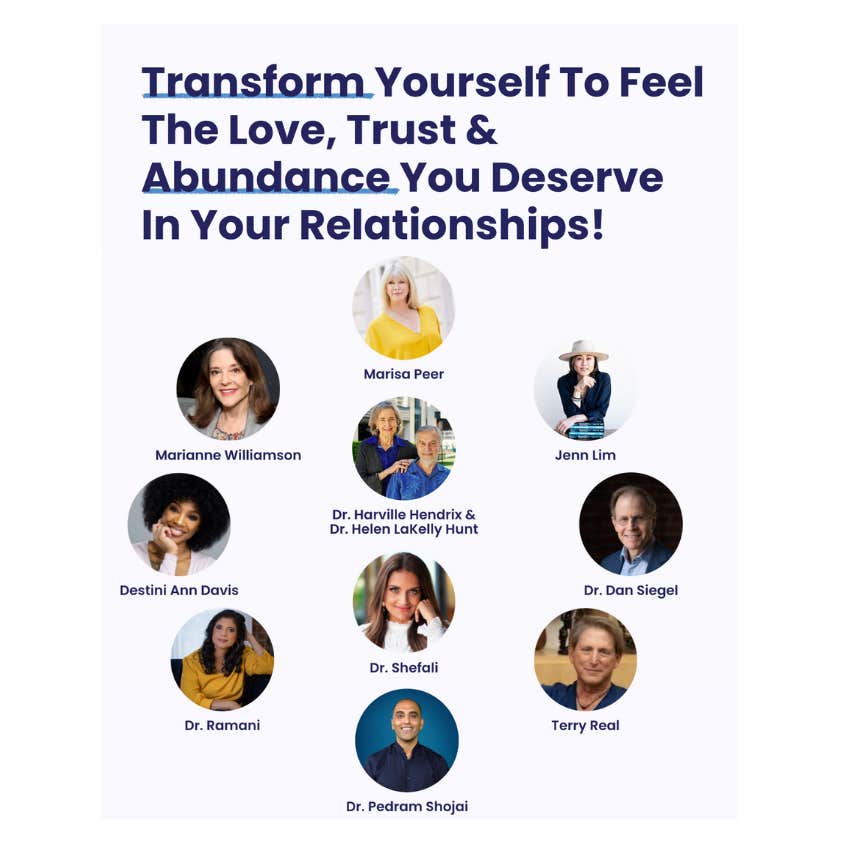The One Type Of Narcissism That's On The Rise (That You've Probably Never Heard Of)
Dr. Ramani shares hints and warning signs to watch out for.
 Roman Samborskyi | Shutterstock
Roman Samborskyi | Shutterstock Social media has made the topic of mental health accessible to everyone, which is a welcome change from the past, when people were unaware of the patterns of behavior that abusive or unkind partners might inhabit. One of these patterns is narcissistic behavior.
Since narcissism has become more of a mainstream topic online, people may believe there are more narcissists than ever. In an interview for The Relationship Fitness Summit, Dr. Ramani Durvasula, a noteworthy expert on narcissism, insists that's not true — except with one specific type of narcissism diagnosis.
The Relationship Fitness Summit, hosted by CEO of YourTango Andrea Miller, is an entirely free and virtual event from September 25 to 28, where you can learn useful tools for building healthier relationships in all areas of your life. Experts like Dr. Ramani share game-changing insights, all to help people have happier, healthier lives.
Vulnerable narcissism is on the rise (and you've probably never heard of it)
There doesn't seem to be a lot of truth in the idea that narcissism is on the rise, and Dr. Keith Campbell, a narcissism researcher at the University of Georgia, agrees with Dr. Ramani that there's not been an increase in malignant or grandiose narcissism, but there has been one among vulnerable narcissists, as shown in the Journal of Personality.
Traits of vulnerable narcissism
Vulnerable narcissism can be difficult to spot. Once you know the critical traits to look for, it is much easier to identify.
- A petulance or irritability that makes people walk on eggshells
- Sullenness or resentfulness that is unwilling to be pleasant
- Victimhood or victim mentality that begs for sympathy
- Passive aggression used to manipulate emotions
- Failure to launch or an inability to accept self-determination, as described in the British Journal of General Practice
- A sense of, "Why does everyone else receive and I don't"
- Aggrieved and angry, which make being around them socially awkward
Vulnerable vs. malignant narcissism
Vulnerable narcissism is often mistaken for malignant narcissism because they share traits.
- Low empathy, or an inability to put yourself in the position of others
- Selfishness that pervades almost every action
- An overwhelming sense of entitlement
- Grandiosity in all things whether being observed or not

The challenges of loving someone with vulnerable narcisissm
Dr. Ramani explains, "They are not the shiny grandiose narcissist who bounds in looking great and holding court. These are people who are not actually always socially successful, but they think they deserve to be, they think they deserve more success, and they don't understand why somebody else had it so easy. And I have to say, that in marriage is absolutely wretched"
You feel pity for them, but they are never satisfied or happy. You can completely lose yourself trying to satisfy the vulnerable narcissist. First, their victim mentality elicits your pity, then the passive-aggression confuses and manipulates, and finally, the entitlement and anger keep you rooted in their suffering.
It sounds terrible for those who encounter or live with a vulnerable narcissist, but the situation is far worse for the one who suffers from this condition, as explained in the Journal of Psychotherapy Integration. They can find it nearly impossible to find happiness, success, or even contentment, and the road out of suffering is challenging and long if they choose to seek help.
For more insights and Dr. Ramani's full interview, sign up for the free Relationship Fitness Summit, September 25 - 28. Learn from world-renowned experts like Dr. Rick Hanson, Dr. Shefali, Destini Ann Davis, Dr. Judy Ho, Dr. James Doty, Fleet Maull, Dr. Laura Berman and Drs. Harville Hendrix and Helen LaKelly Hunt, tune into the free Relationship Fitness Summit, September 25 - 28.
During the Summit, our experts and thought leaders will cover:
- The proven tools, skills, and strategies you need to improve your relationship fitness in ALL key areas of your life: in your work, with your family and friends, in your love life, and crucially, with yourself.
- The immense power of relationship fitness and how it is key to not only your happiness, longevity, health, and emotional wellness but also your financial well-being.
- The power of deep listening, accountability, and curiosity to achieve exceptional relationships.
- ...and so much more.

It's all available at no cost, and entirely online. The opportunity for healthier, more rewarding relationships is waiting.
Will Curtis is a creator, editor, and activist who has spent the last decade working remotely.

